What Is Aloe Vera Oil? Its Benefits, Uses, & How To Make It
Rejuvenate your scalp and skin with the soothing properties of this unique oil.
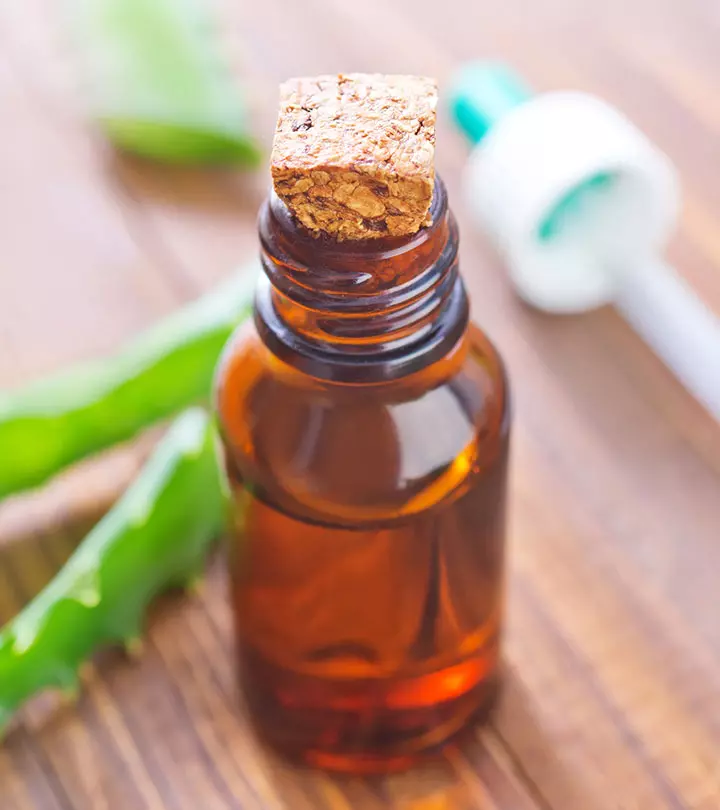
Image: iStock
Aloe vera oil is becoming popular for the array of benefits it offers for the skin and hair. It is a fusion that is made with oil and aloe extracts. Aloe vera has been used as a natural ingredient in many beauty regimens across cultures.
This nutritious oil is used to handle many skin and hair issues (1). It is also known for its wound healing properties, and it can effectively manage mosquito bites. Want to know more about aloe vera oil and how is it prepared? Scroll down to learn more!
 Know Your Ingredient: Aloe Vera Oil
Know Your Ingredient: Aloe Vera OilWhat Is It?
A mix of oil and aloe vera extracts that has soothing and healing properties.
What Are Its Benefits?
It moisturizes and repairs the skin, promotes hair growth and removes dark spots.
Who Can Use It?
All except people who have hypersensitive or infected skin.
How Often?
It can be applied on the skin daily.
Caution
It might cause skin irritation, such as hives and rashes in some individuals.
In This Article
The Origin Of Aloe Vera Oil
Since the early 1800s, aloe vera (Aloe barbadensis miller) is used to treat chronic skin diseases, bruises, burns, wounds, and even constipation. These properties are attributed to the succulent leaves of aloe vera (1).
Their yellow sap and green skin contains anthraquinones, glycosides, carbohydrates, and proteins. These two portions are commonly blended with mineral oil, milk, wine, water, and honey for medical applications (1), (2).
When you combine aloe extracts with oil, you get aloe vera oil.
You could use mineral oil, soybean oil, olive oil, jojoba oil, or coconut oil – any carrier oil of your choice – to obtain this infusion. You need to macerate aloe pieces/pulp in the carrier oil and let it steep/boil for a while.
Key Takeaways
- Aloe vera oil may help repair skin and promote hair growth.
- You can make aloe vera oil by mixing the gel with extra virgin coconut oil or any carrier oils.
- Aloe vera gel combined with olive oil is an effective mosquito repellent.
- Adding ocimum oil to aloe vera may help reduce acne lesions.
How Does It Help Your Body?
Due to the extraction steps, aloe vera oil is rich in phytochemicalsi A group of chemical compounds in plants and fruits that provide basic nutrition and reduce the risk of diseases in humans. . This oil has potent anti-inflammatory, wound healing, and antimicrobial effects (3).
This oil contains growth-stimulating compounds, like glucomannans. They stimulate the synthesis of collagen and other factors involved in skin repair and hair growth. Since aloe vera is rich in vitamins and minerals, its oil may also rejuvenate your skin and hair cells (1), (4).
Go through the following section to know how aloe vera oil can benefit you.
What Are The Benefits of Using Aloe Vera Oil?
Aloe vera oil moisturizes and protects your skin. It may boost hair growth and nourish dry and flaky scalp if used regularly. You can use this oil as the following.
1. Skin-lightening Agent
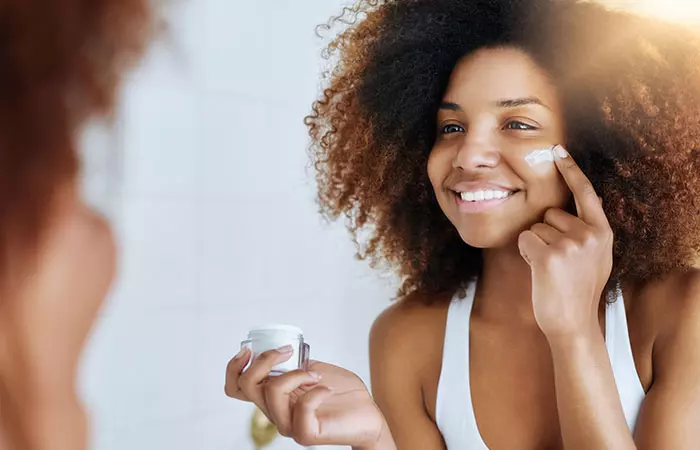
Aloe vera plant contains aloesin, a compound that impacts your skin tone. Aloesin interferes in the production of melanin. It blocks the production of melanini The natural pigment produced by melanocytes in the body that is responsible for the color of eyes, skin, and hair. to lighten the skin color (5). Aloe vera gel can be included in your skincare routine for amazing benefits, such as moisturizing, healing and even anti-inflammatory benefits.
UV rays also induce dark spots and pigmentation. Topical application of an aloesin-rich preparation may cause a visible reduction in the intensity of the spots (5).
Combining extra virgin coconut oil with aloe vera extracts showed 5-100% skin-lightening intensity. This aloe vera oil preparation did not show rancidity, undesirable oxidation, or unpleasant odor when used with turmeric (6).
2. Moisturizer And Mosquito Repellent
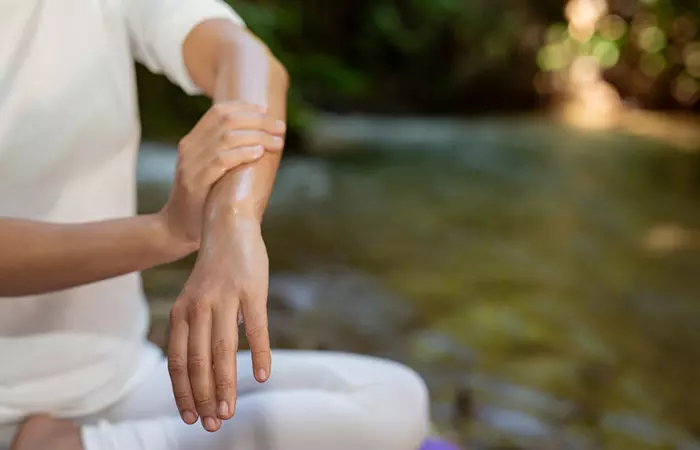
A mixture of aloe vera gel and olive oil can be used as a plant-based topical mosquito repellent. A study was carried out to observe the effect of aloe-olive oil in preventing mosquito bites.
The volunteers who applied this oil on naked skin reported fewer mosquito bites as compared to their counterparts. They had smoother skin than earlier (4).
The volunteers who applied this essential oil on naked skin reported fewer mosquito bites as compared to their counterparts. Using this oil could protect you from malaria, dengue, and parasitic diseases as well as nourish your skin (4).
This study reported mild irritation/sensitivity in subjects that used aloe oil with higher aloe vera gel proportion (4).
 Quick Tip
Quick Tip3. Anti-acne Agent
A study found that a combination of aloe vera and ocimum oil could help reduce acne lesions. Aloe had a synergistic effect on the anti-acne properties of Ocimum gratissimum oil (7).
Applying the mixture for 2-5 days reduced acne lesions by 50%. The antibacterial activity of aloe gel helps treat chronic and highly inflamed cases as well (7).
You can also use aloe vera for acne by combining aloe vera gel and tea tree oil for an anti-acne treatment. Tea tree oil decreases sebum secretion and suppresses the growth of acne-causing bacteria. Combining it with aloe vera gel increases its anti-acne activity (8).
The components of this gel, including mannose-6-phosphate, reduce erythema (red bumps) and inflammatory scars in the subjects. This combination also caused rapid tissue restoration and opening of clogged pores in affected areas (7), (8).
4. Hair Growth Booster
Aloe vera is one of the popular home remedies for hair loss and repair. Its pulp, leaves, and oil are commonly used on dry scalp, damaged hair ends, and colored hair (9).
You can boil the leaves and apply the cooled liquid to your hair. Massaging aloe gel/extracts with oils (olive, coconut, wheat germ, sesame, avocado, almond, fish, and castor) into your scalp will also give good results (10).
Using aloe vera for hair can help maintain the pH balance of the scalp and stimulate the growth of well-moisturized, rejuvenated, and dandruff-free hair (10).
5. Hydrating And Anti-aging Solution
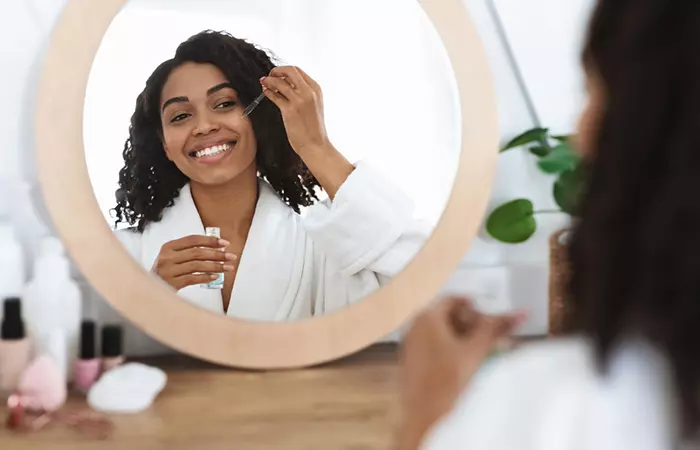
Dry skin makes wrinkles and fine lines more visible. Lack of moisture in the layers of your skin results in flaky skin with shrunken pores (11). This worsens the sensitivity of your skin and may even lead to psoriasisi A chronic skin disease that causes rashes and itchy, scaly patches on the skin and mainly affects the scalp, elbows, trunk, and knees. .
Aloe vera contains mucopolysaccharides that trap/bind moisture in your skin. Applying aloe vera gel-based cream/lotion/oil improves the integrity of sensitive and dry skin (1).
It stimulates the production of collageni The main protein produced by the body that is responsible for the function and structure of the skin, connective tissues, bones, and cartilage. and elastin fibers, making your skin more elastic, plump, softer, and younger (1).
6. Stretch-mark Healer
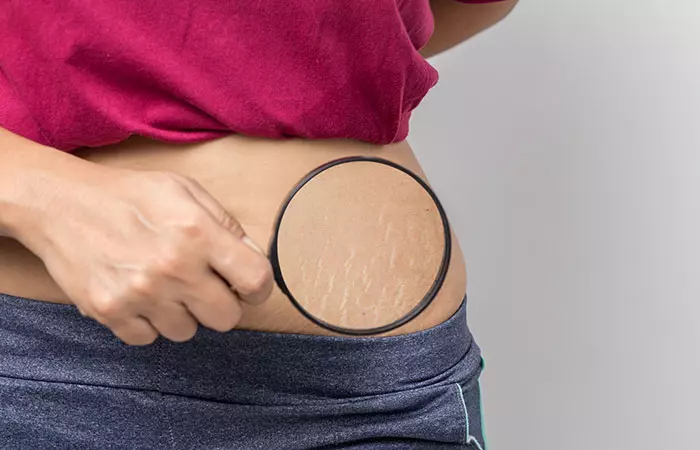
Stretch marks or striae are long scars with underlying thinning of the skin. Pregnancy, rapid weight change, weightlifting, and continuous stretching of the skin commonly cause them. Striae can cause psychological and sexual problems (12), (13).
There is no definite strategy/drug regimen to treat them. Applying steroid-based creams can be a temporary and risky solution. However, aloe vera gel with carrier oils is considered in alternative medicine (12).
Sweet almond oil-aloe vera gel creams control the itching and redness of stretch marks. Applying them topically can also prevent striae from spreading across the abdomen, especially in women who are not pregnant (13).
7. Dandruff Fighter
Aloe vera oil may aid in managing dandruff. It possesses anti-inflammatory and antimicrobial properties that may soothe the scalp, combat the dandruff-causing Malassezia fungus, and help eliminate dandruff flakes (14).
Regular use of aloe vera oil may provide relief from itching and irritation, thus improving your scalp health and appearance (15). Its gentle therapeutic properties make it a good choice for addressing dandruff while maintaining overall hair and scalp wellness. However, it is important to note that research is limited in this regard.
You can apply it as a regular hair oil or even use it as a serum after washing your hair.
Now that you are aware of its benefits, don’t you want to give aloe vera oil a shot? What if you could make it on your own?
Yes! You can make a crude preparation of this oil at home.
Get the recipe below.
How To Make Aloe Vera Oil At Home
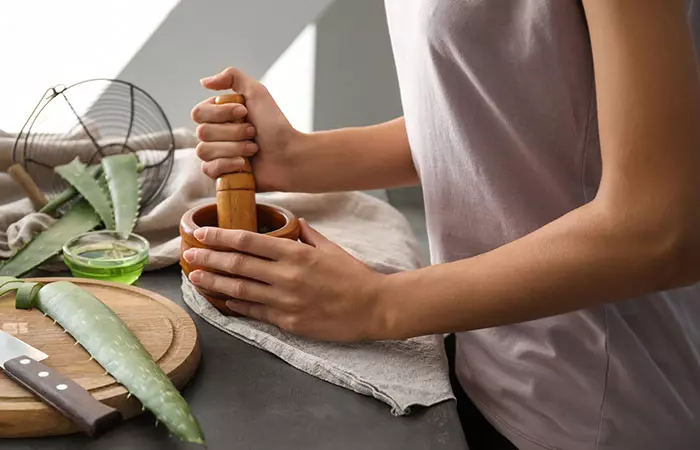
Before you start, let’s get this straight.
Aloe vera oil will not be a clear, viscous liquid (like other oils). It will be slurry of aloe pulp that is partially dissolved in oil.
What You Need
- Aloe vera leaves
- Virgin coconut oil or any carrier oil of your choice (mustard seed, sesame, castor, olive, or almond oil)
- Knife
- A medium-sized mixing bowl
- Saucepan/deep vessel (to boil contents)
Let’s Make It!
- Wash the freshly-plucked aloe vera leaves under running water.
- Cut the leaf corners to remove the thorns with a sharp knife.
- Slit the leaves into two lengthwise.
- Scoop the gel out of the leaf sections with a spatula and collect in a bowl.
- Fill another bowl of the same capacity with virgin coconut oil or carrier oil.
- Transfer the measured oil to a saucepan. Place it on a cooktop/stove and leave it on low heat/flame.
- Let it simmer. Stir the mixture occasionally.
- When all the gel turns brown and translucent, turn off the heat.
- Let the mixture cool down.
- Strain the contents into an airtight glass jar.
You can use this as a natural remedy for your face, skin, and hair by adding it to packs and masks. You can also topically use aloe vera for lips as a nourishing treatment. However, do a patch test to ensure that you are not sensitive/allergic to the preparation.
 Quick Tip
Quick TipAloe vera oil has recently become popular due to its ability to address various issues naturally. Moreover, it is a sustainable choice for skin care and wellness routines. Read on to learn more about it.
Environmental Impact Of Aloe Vera Oil
Aloe vera plants require minimal water and that makes them ideal for dry regions and conserving water resources. They grow with little to no pesticides, reducing soil and water contamination. Also, the plants are renewable since they can be harvested multiple times without replanting. Aloe vera oil is biodegradable which is far better for the environment than synthetic products that can create long-lasting pollution. Choosing natural, eco-friendly options like aloe vera oil over synthetic products supports a cleaner and more sustainable planet.
Infographic: How To Use Aloe Vera Oil For Hair
Aloe vera oil is nutritionally-rich and repairs damaged ends and improves hair health. You can use homemade aloe vera oil to keep your hair smooth, shiny, and healthy. Wondering how? The following infographic guide can help. Check it out!
Some thing wrong with infographic shortcode. please verify shortcode syntax
The use of aloe vera oil in skin and hair care is getting popular thanks to its benefits. This oil can act as a skin lightening agent and moisturizer. It also effectively manages acne, and its anti-aging properties help hydrate the skin. It also minimizes the appearance of fine lines and wrinkles by exhibiting a moisturizing effect on dry skin. Aloe vera oil also heals stretch marks. Massaging your hair with this oil can boost hair growth and manage dry hair, split ends, and dry scalp. Try including this oil in your beauty regime to reap its benefits.
Frequently Asked Questions
Which is better for the face: aloe vera or coconut oil?
Both have their own benefits for the skin. While aloe vera helps moisturize the skin, soothe sunburns, and lighten blemishes, coconut oil helps keep the skin hydrated, reduce inflammation, and help heal damaged skin.
How long does aloe oil last?
It can last for about 8-10 months without getting spoiled.
How is aloe vera oil different from aloe vera gel?
Aloe vera gel is obtained from the clear gel inside the aloe leaf, whereas aloe vera oil is made by infusing this gel with carrier oil and heating it until the mixture turns brown and translucent.
Is aloe vera oil safe to ingest?
No, aloe vera oil is not safe to ingest as the ingestion of aloe preparations is associated with several health risks, like kidney failure, hypersensitive reactions, and diarrhea (14). Even if you decide to consume aloe juice, it is recommended to consult your doctor before doing so.
How should aloe vera oil be stored?
You should store aloe vera oil inside a refrigerator in an airtight container to prevent it from going bad and extend its shelf life.
What is the recommended dosage of aloe vera oil?
There is no recommended dosage of aloe vera oil. It is better to use it topically and avoid ingestion to prevent health risks like diarrhea and kidney failure (14).
Is aloe vera oil suitable for all skin types?
Yes, aloe vera oil is suitable for all skin types as it contains natural ingredients. You can also choose different carrier oils like jojoba and coconut oil while making it, depending on your skin type. However, if you have sensitive or acne-prone skin, make sure to perform a patch test before using the oil to avoid skin irritation.
Illustration: What Is Aloe Vera Oil? Its Benefits, Uses, & How To Make It
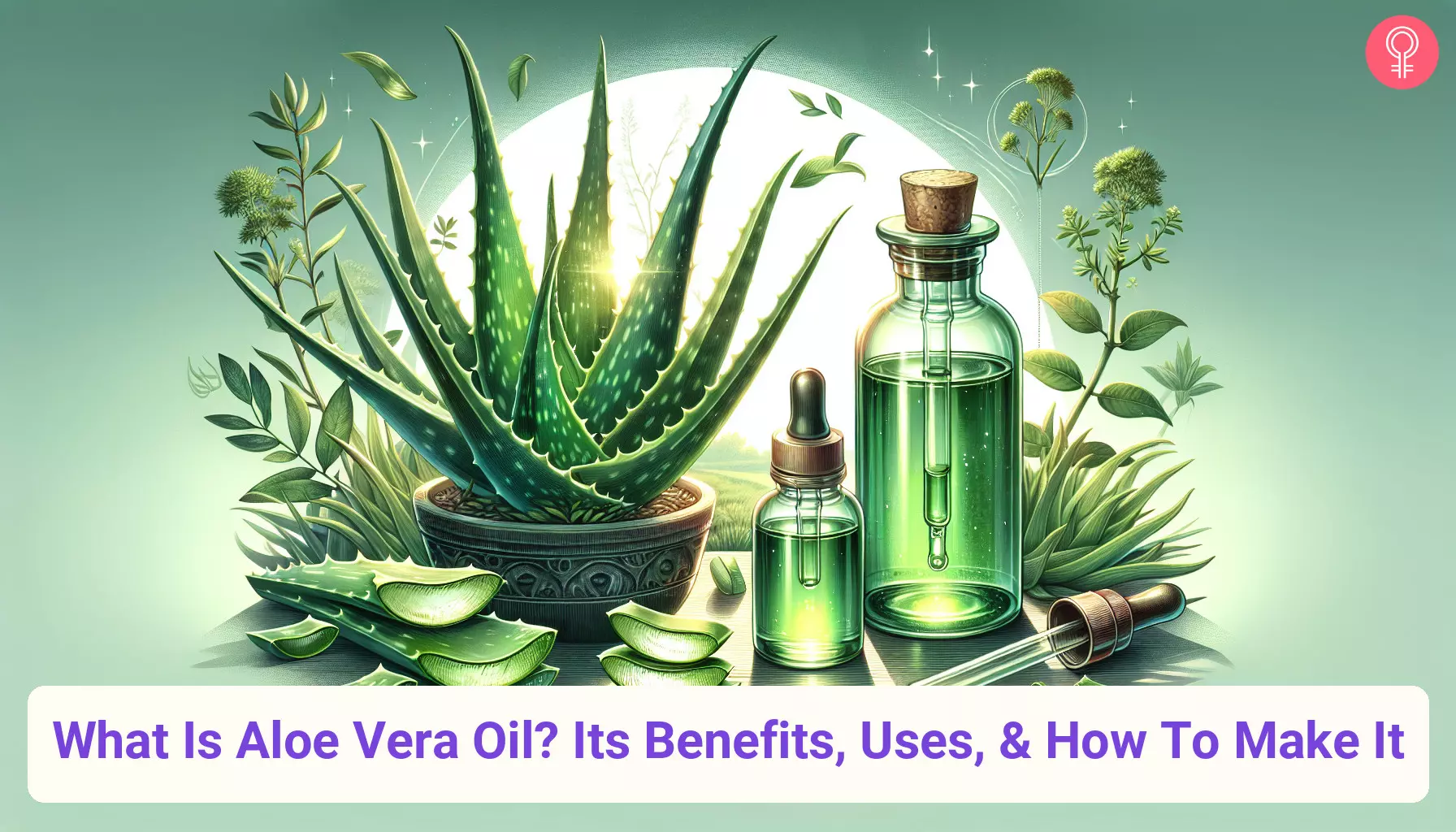
Image: Dall·E/StyleCraze Design Team
References
Articles on StyleCraze are backed by verified information from peer-reviewed and academic research papers, reputed organizations, research institutions, and medical associations to ensure accuracy and relevance. Read our editorial policy to learn more.
- ALOE VERA: A SHORT REVIEW, Indian Journal of Dermatology, US National Library of Medicine, National Institutes of Health.
https://www.ncbi.nlm.nih.gov/pmc/articles/PMC2763764/ - Medicinal Benefits of Aloe Vera, Chiwon W. Lee Department of Plant Sciences, North Dakota State University.
https://www.ndsu.edu/pubweb/chiwonlee/plsc211/student%20papers/articles99/tyeager/ - Comparative trial of Aloe vera/olive oil combination cream versus phenytoin cream in the treatment of chronic wounds. Journal of Wound Care, US National Library of Medicine, National Institutes of Health.
https://pubmed.ncbi.nlm.nih.gov/26488737/ - Mixture of olive oil and Aloe vera gel: A natural mosquito repellent and a skin moisturizer. International Journal of Mosquito Research, Academia.
https://www.academia.edu/28674704/Mixture_of_olive_oil_and_Aloe_vera_gel_A_natural_mosquito_repellent_and_a_skin_moisturizer_collected_from_district_Kohat_KP_Pakistan - Are Natural Ingredients Effective in the Management of Hyperpigmentation? A Systematic Review, The Journal of Clinical and Aesthetic Dermatology, US National Library of Medicine, National Institutes of Health.
https://www.ncbi.nlm.nih.gov/pmc/articles/PMC5843359/ - Extra virgin coconut oil (EVCO): natural skin lightening enhancer with Curcumin, Acta Horticulturae, National Agricultural Library, United States Department of Agriculture.
https://search.nal.usda.gov/discovery/search?query=lds35,contains,817076-01nal_inst,AND&tab=LibraryCatalog&search_scope=MyInstitution&vid=01NAL_INST:MAIN&mode=advanced&offset=0 - The effect of aloe vera gel on theanti-acne properties of the essential oil of Ocimum gratissimum Linn leaf – a preliminary clinical investigation, The International Journal of Aromatherapy, Elsevier, Academia.
https://www.academia.edu/24472789/The_effect_of_aloe_vera_gel_on_the_anti-acne_properties_of_the_essential_oil_of_Ocimum_gratissimum_Linn_leaf_a_preliminary_clinical_investigation - Treatment of acne with a combination of propolis, tea tree oil, and Aloe vera compared to erythromycin cream: two double-blind investigations” Clinical Pharmacology: Advances and Applications, US National Library of Medicine, National Institutes of Health.
https://www.ncbi.nlm.nih.gov/pmc/articles/PMC6298394/ - Ethnopharmacological survey of home remedies used for treatment of hair and scalp and their methods of preparation in the West Bank-Palestine” BMC Complementary & Alternative Medicine, US National Library of Medicine, National Institutes of Health.
https://www.ncbi.nlm.nih.gov/pmc/articles/PMC5499037/ - A Close Look at Aloe Vera Barbadensis and It’s Effect on Hair Health, Researchgate.
http://sites.lib.purdue.edu/crowdaskdemo/index.php?qa=286&qa_1=herbal-remedies-for-hair-loss-and-dandruff - Xeroderma, NCBI
https://www.ncbi.nlm.nih.gov/books/NBK565884/ - Interventions for established stretch marks” Cochrane Library, US National Library of Medicine, National Institutes of Health.
https://www.ncbi.nlm.nih.gov/pmc/articles/PMC6483707/ - The effect of Aloe vera gel and sweet almond oil on striae gravidarum in nulliparous women.” The Journal Of Maternal-fetal & Neonatal Medicine, US National Library of Medicine, National Institutes of Health.
https://pubmed.ncbi.nlm.nih.gov/28521546/ - The Review on Properties of Aloe Vera in Healing of Cutaneous Wounds
https://www.ncbi.nlm.nih.gov/pmc/articles/PMC4452276/ - “Formulation and evaluation of aloe vera gel shampoo” International Journal of Pharmaceutics and Drug Analysis
https://media.neliti.com/media/publications/409534-formulation-and-evaluation-of-aloe-vera-273d5bc2.pdf
Read full bio of Dr.Varsha Prabala
Read full bio of Swathi Handoo
Read full bio of Ravi Teja Tadimalla
Read full bio of Himanshi Mahajan





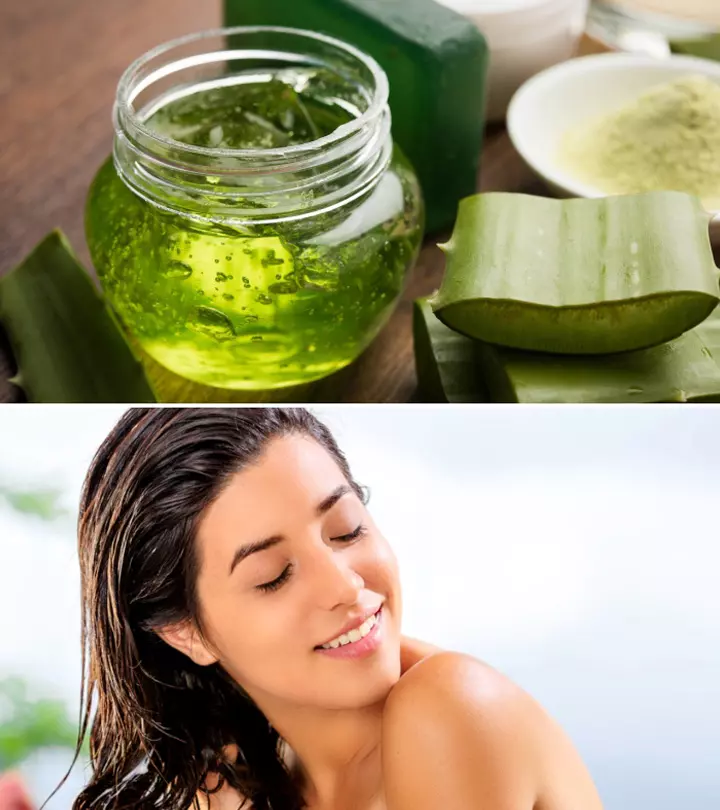
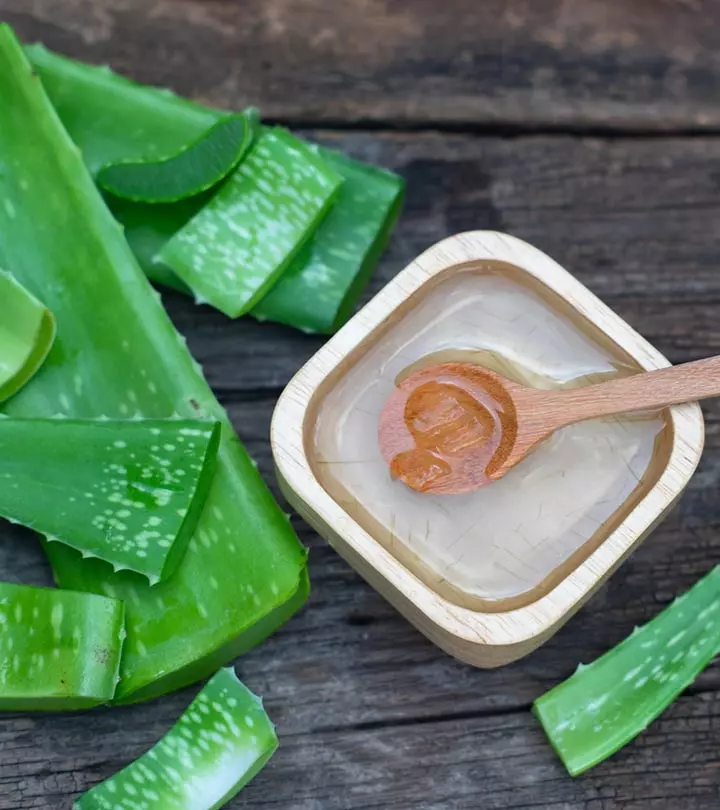
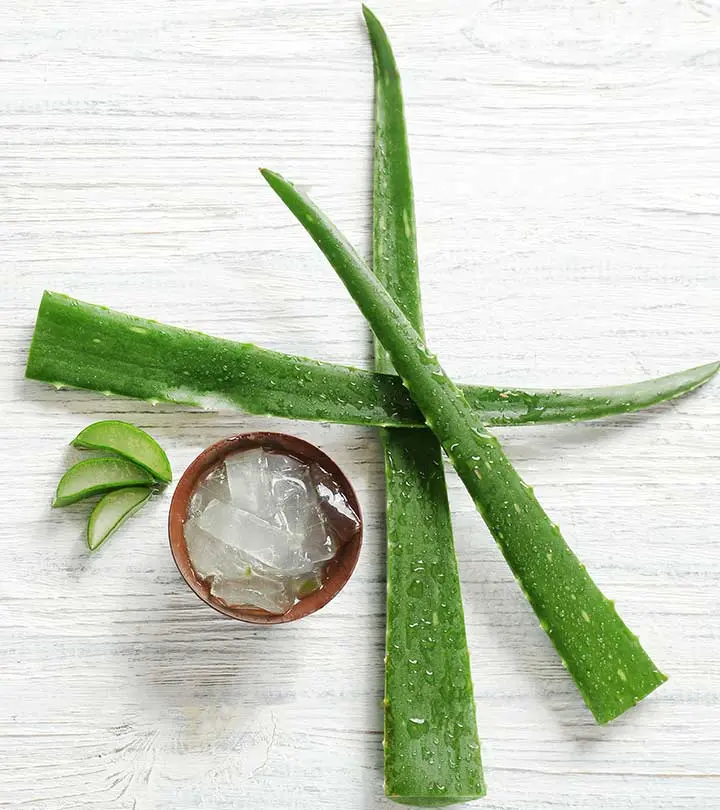
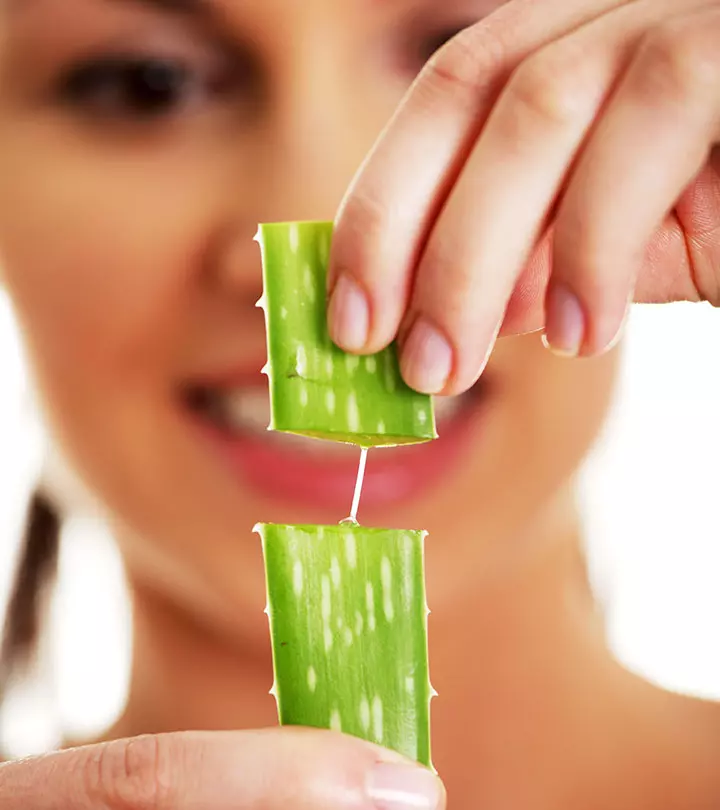
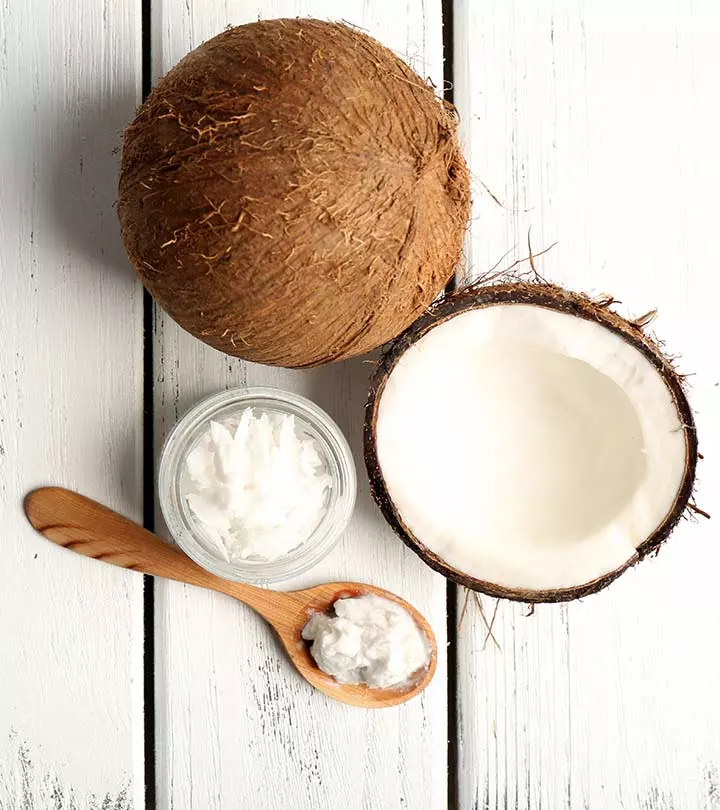
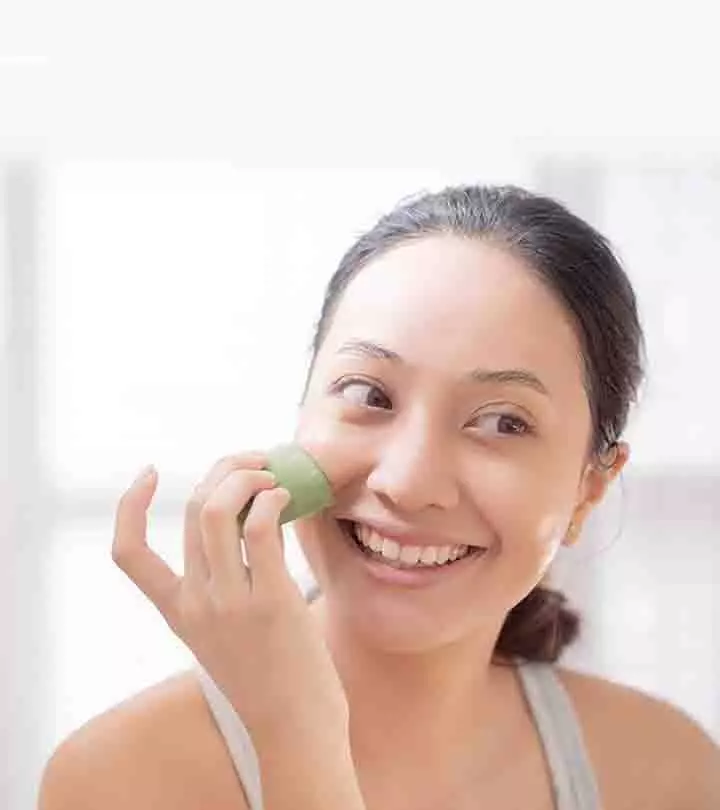
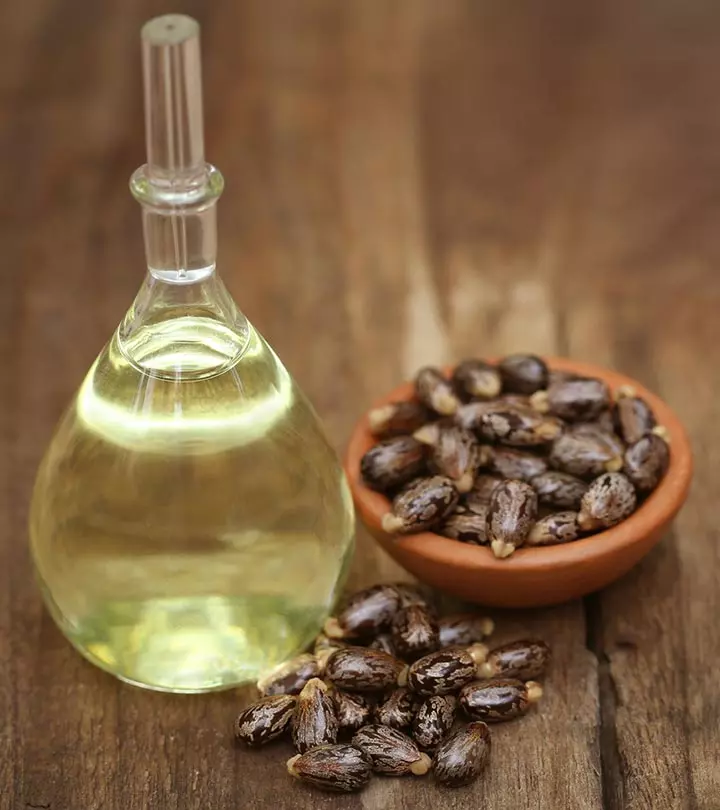
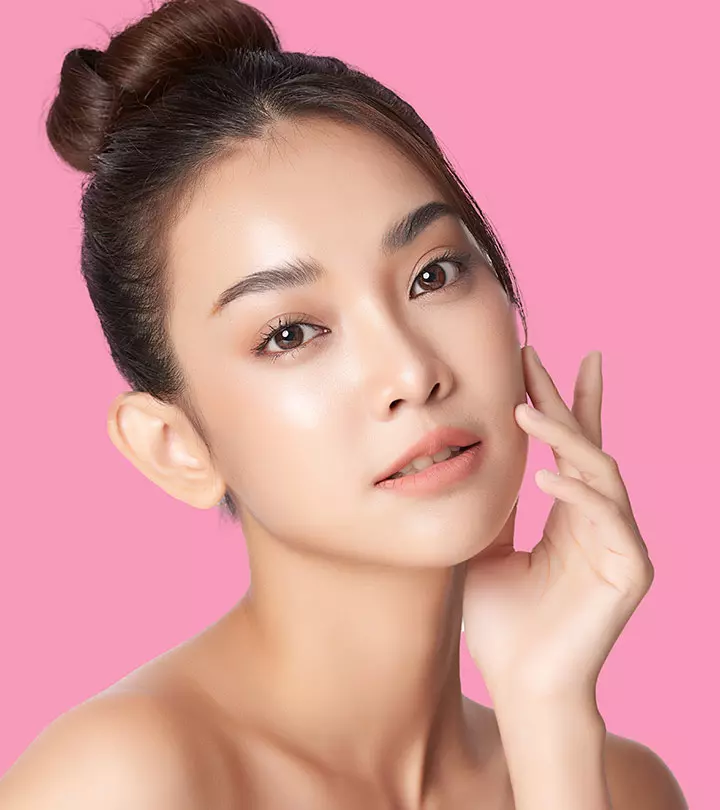

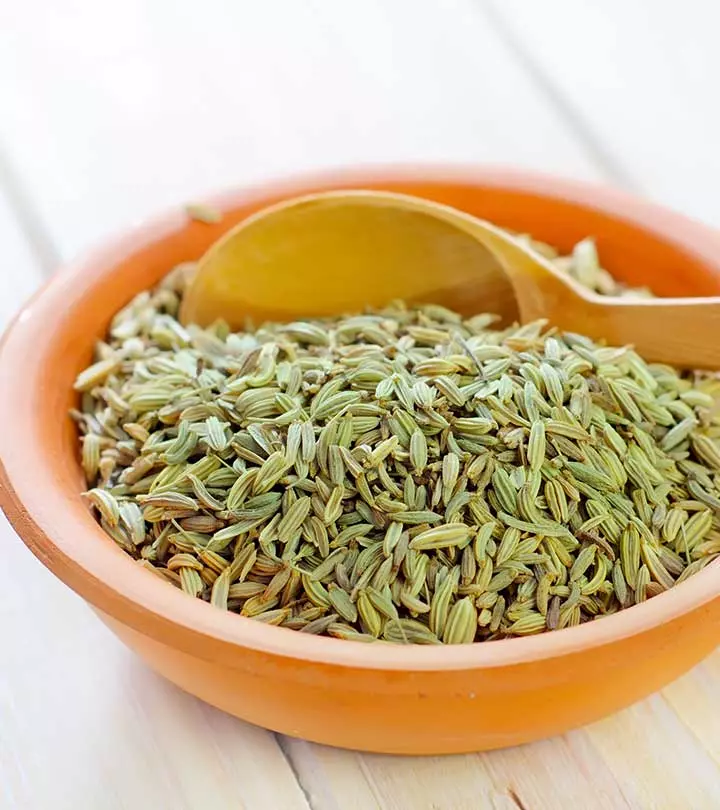

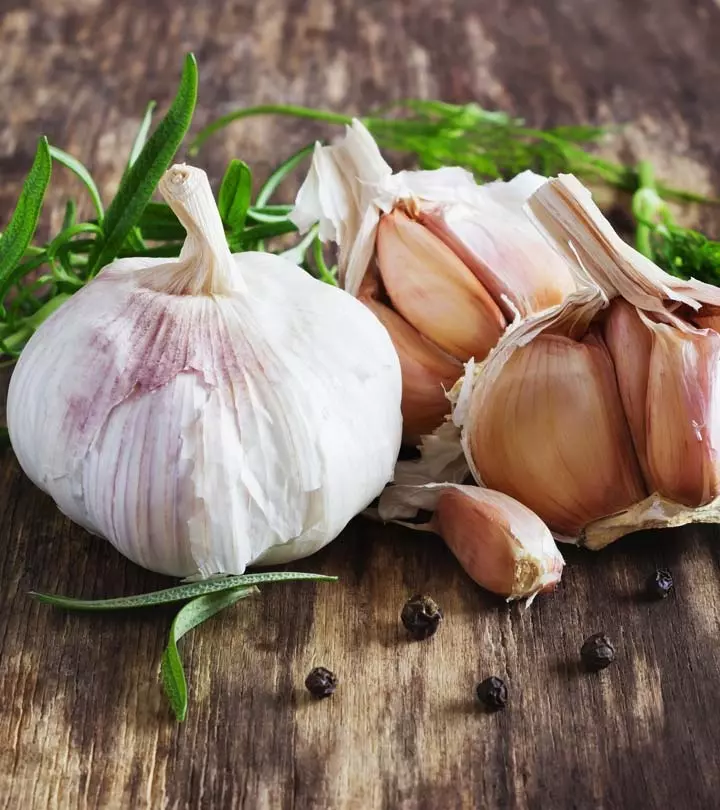


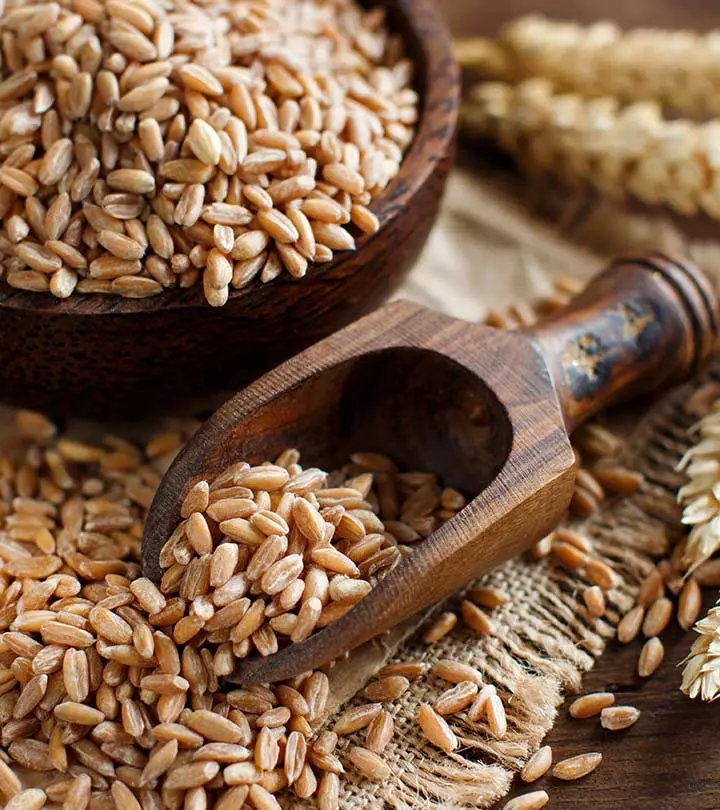

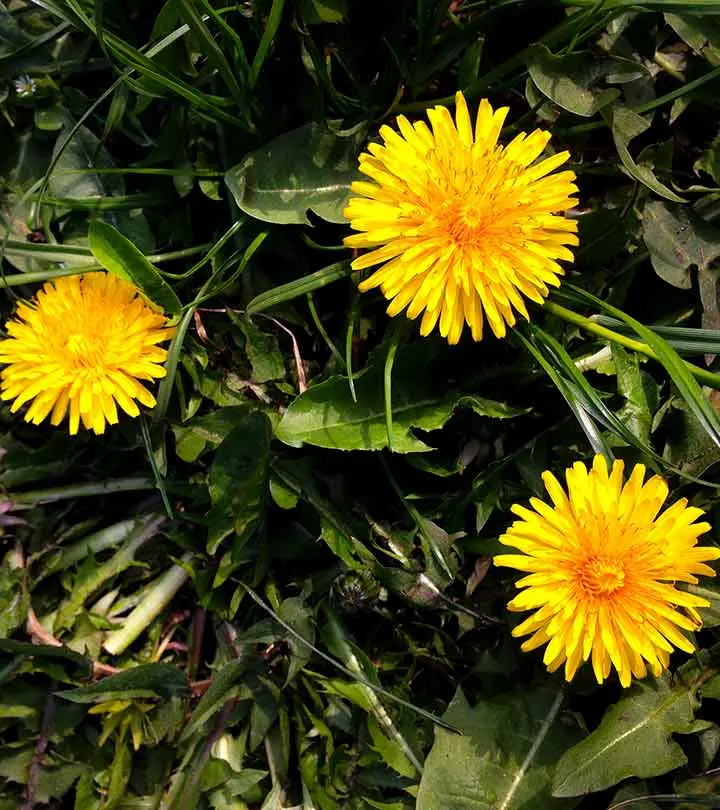
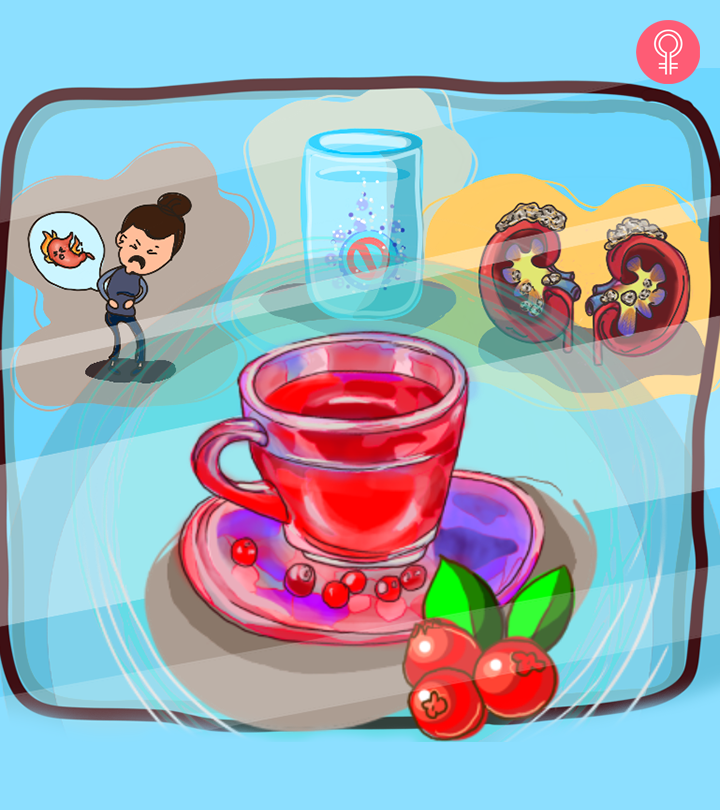

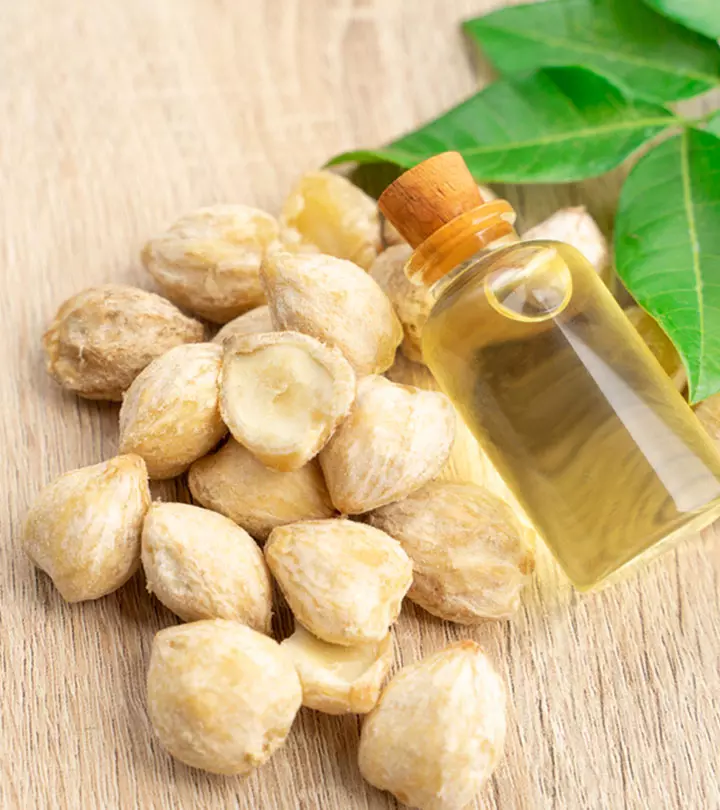
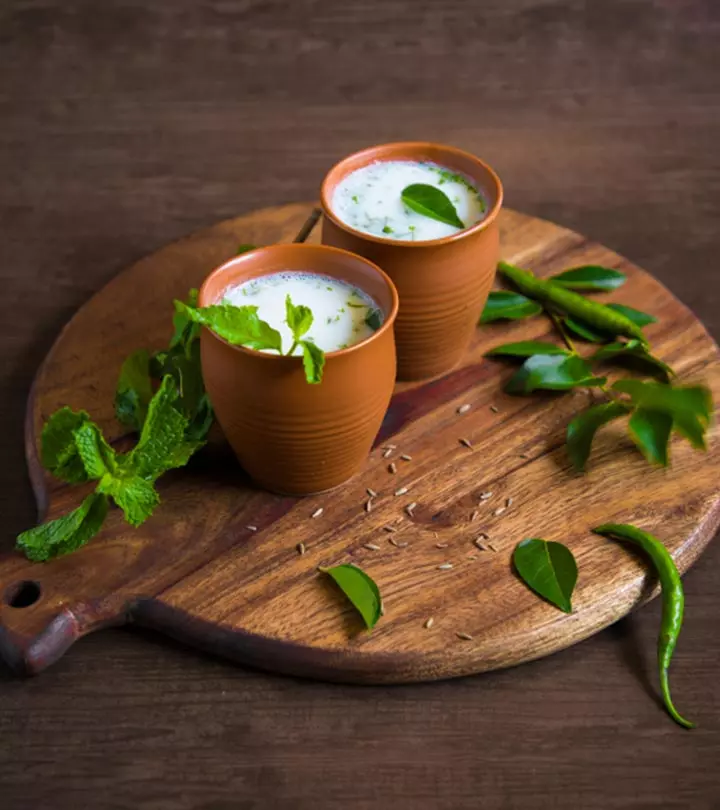
Community Experiences
Join the conversation and become a part of our empowering community! Share your stories, experiences, and insights to connect with other beauty, lifestyle, and health enthusiasts.